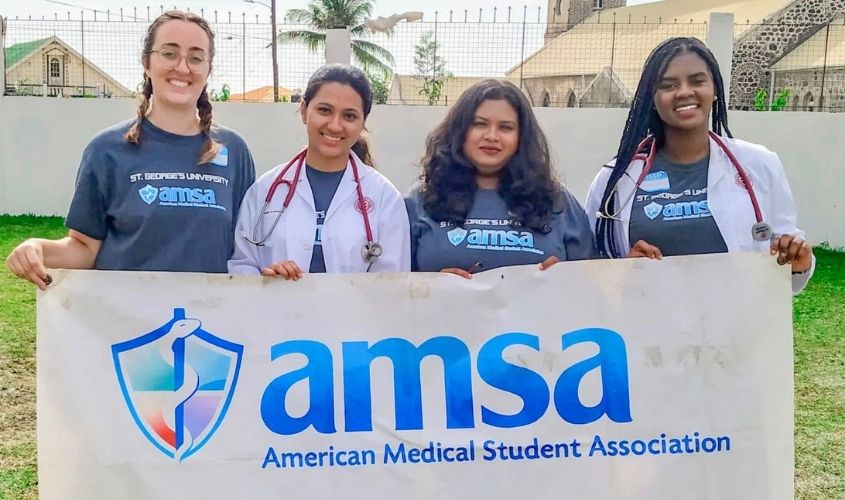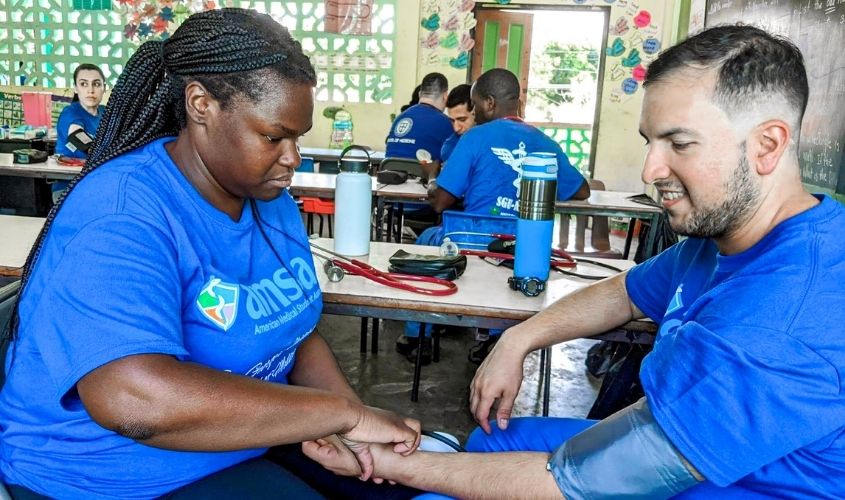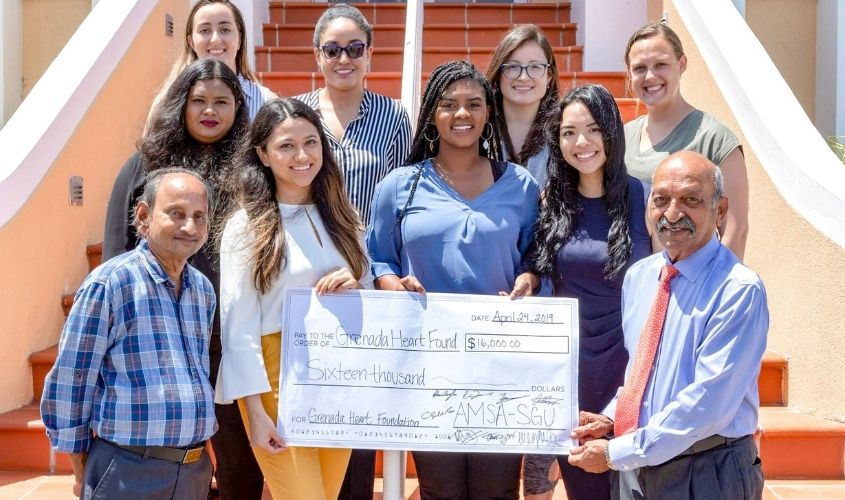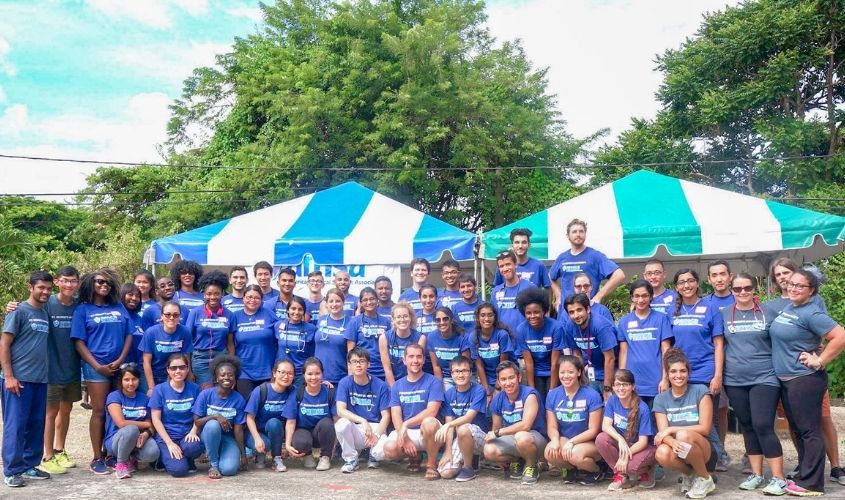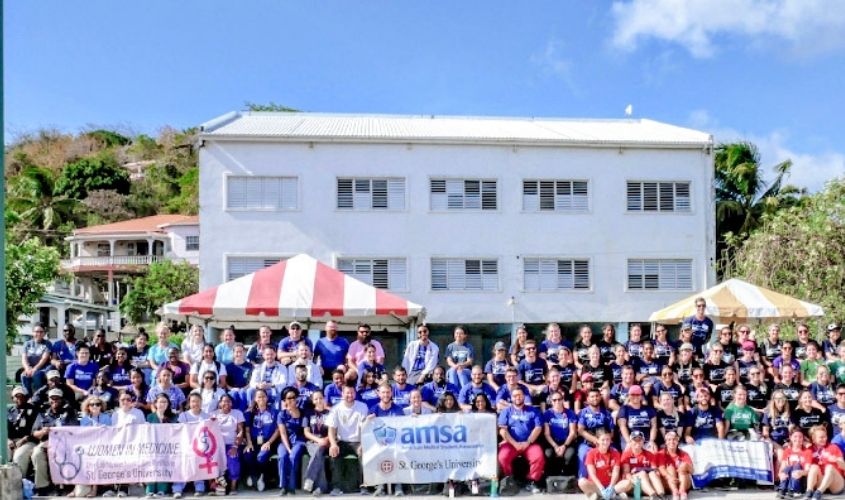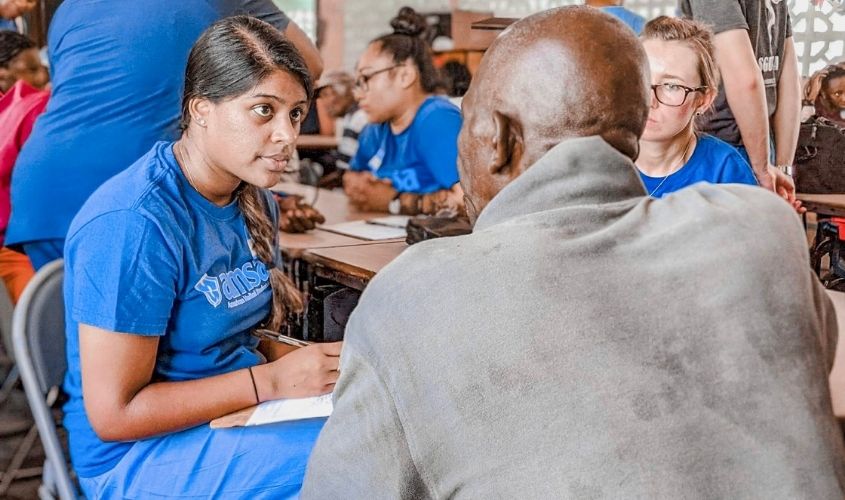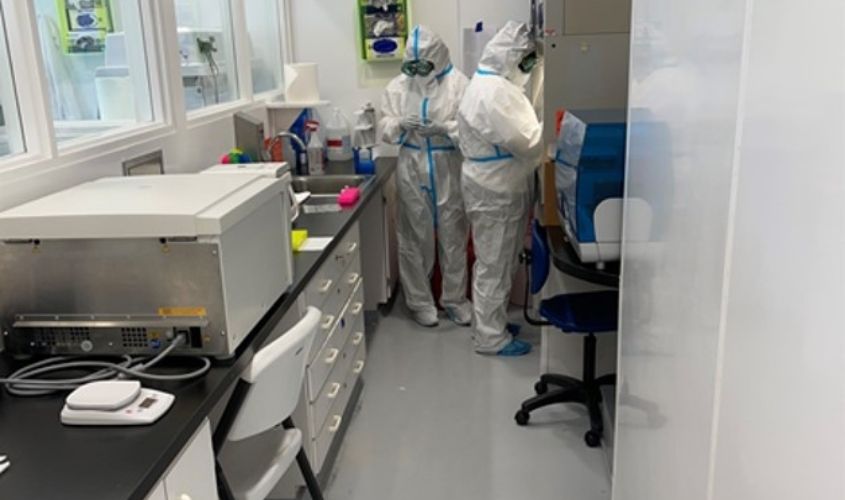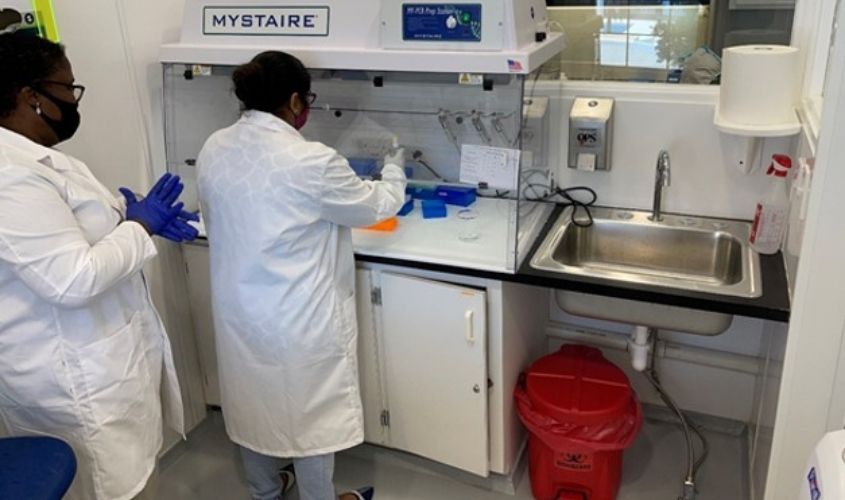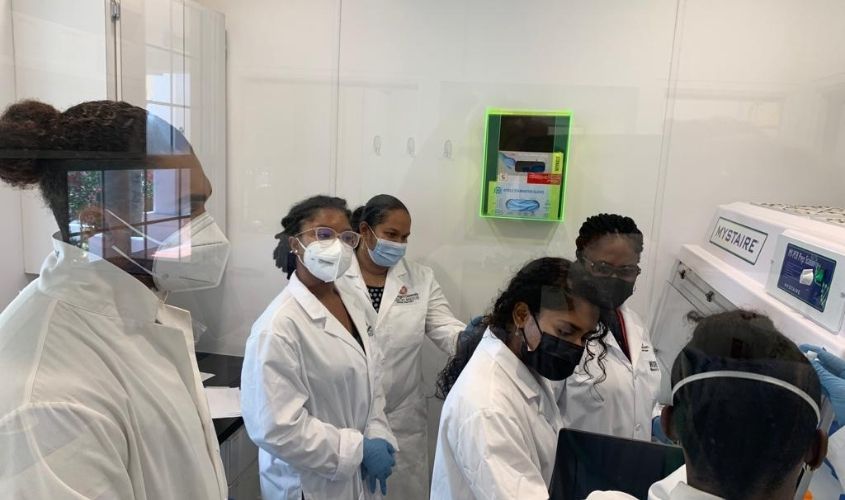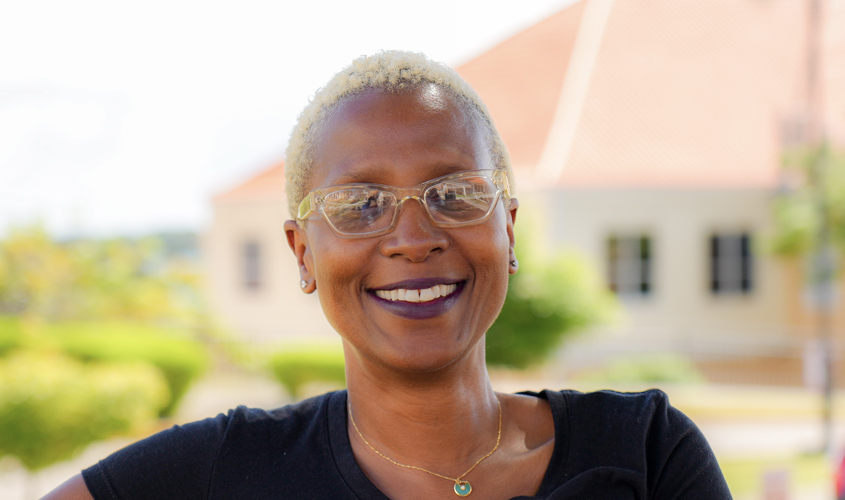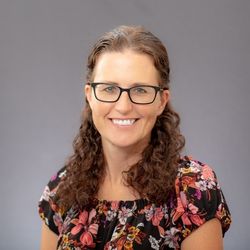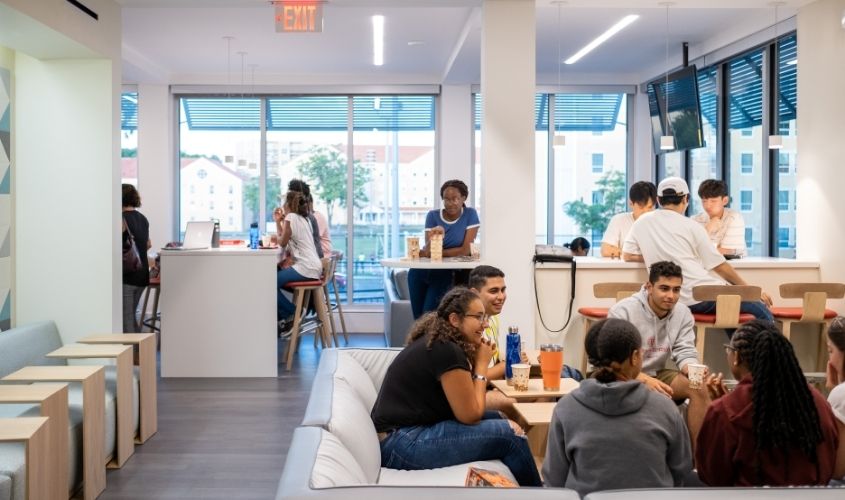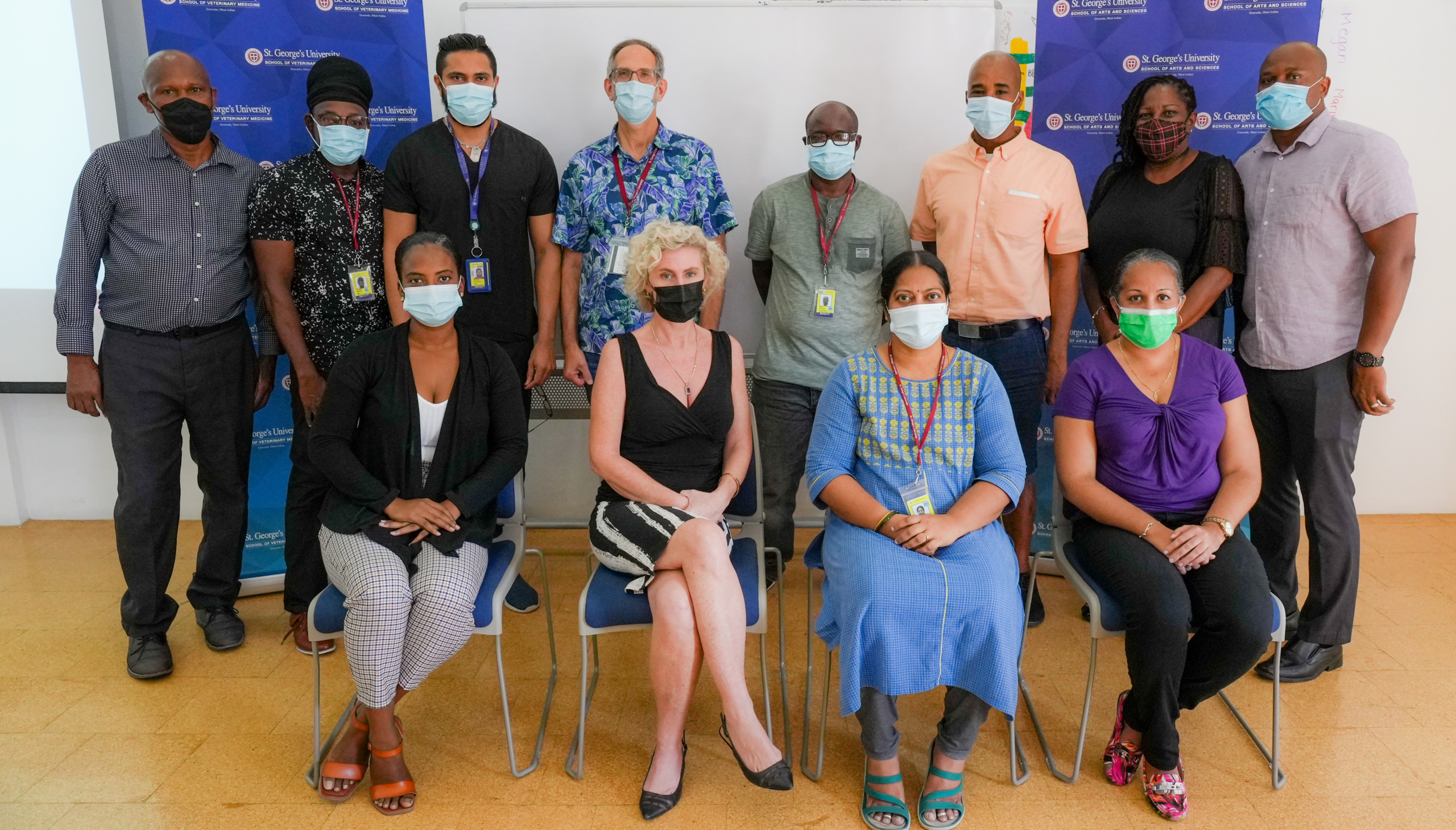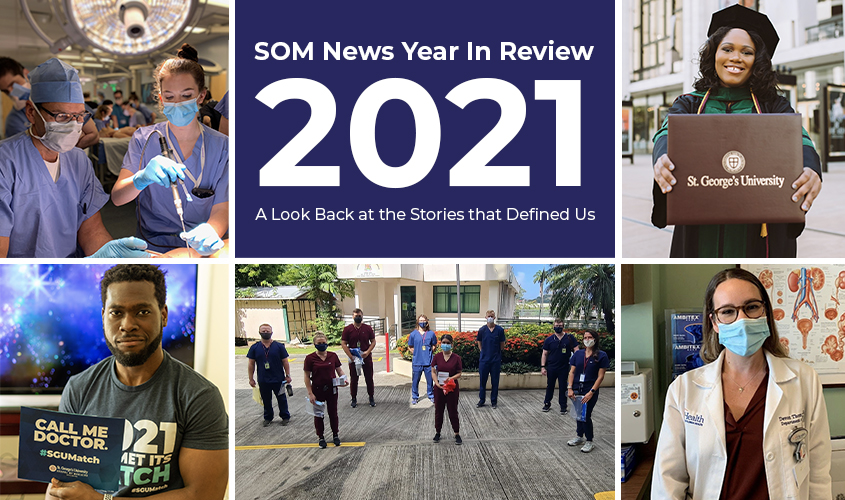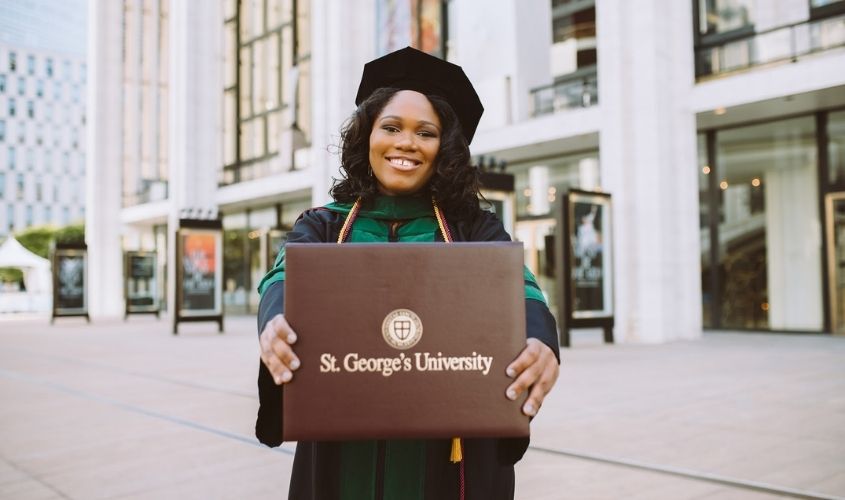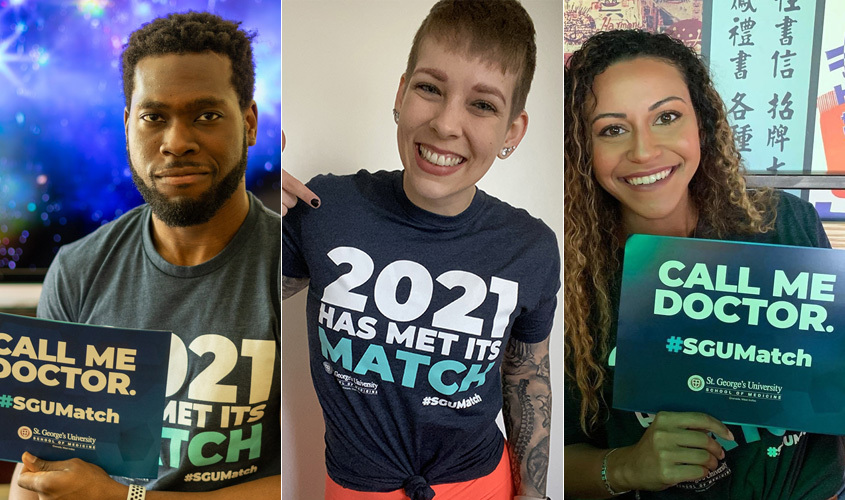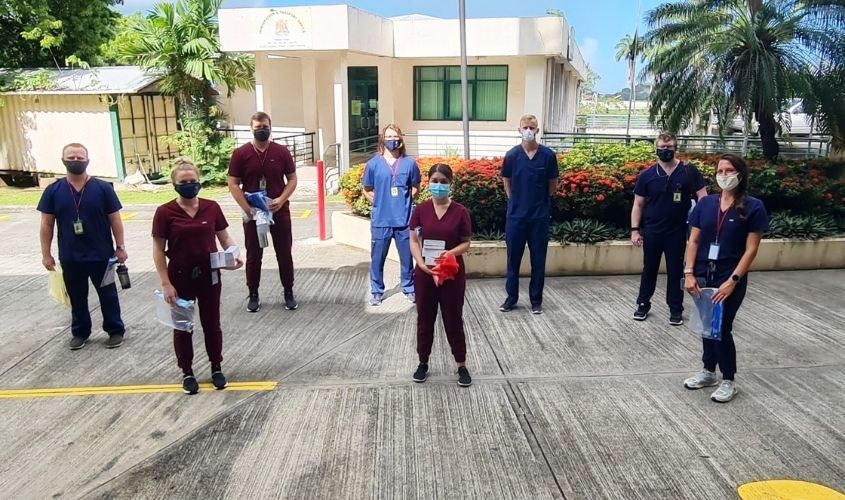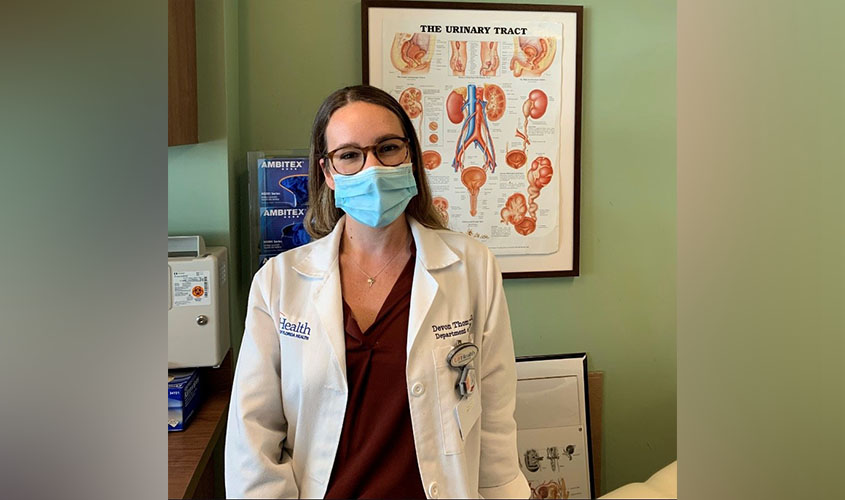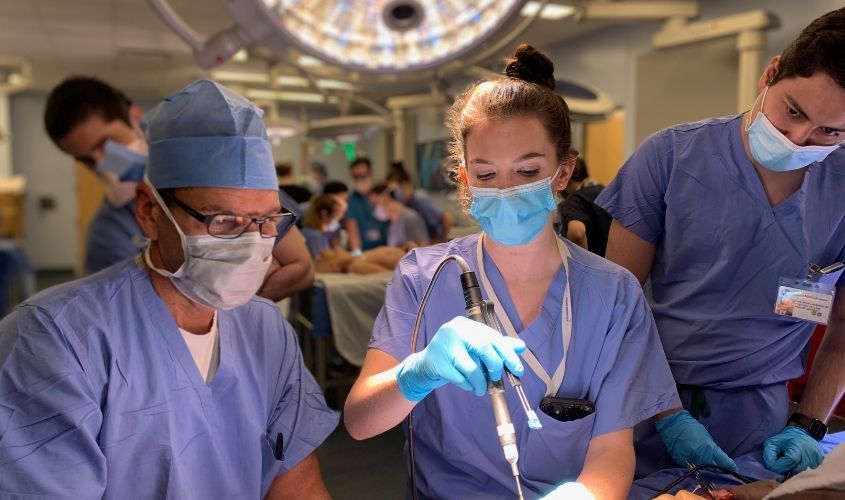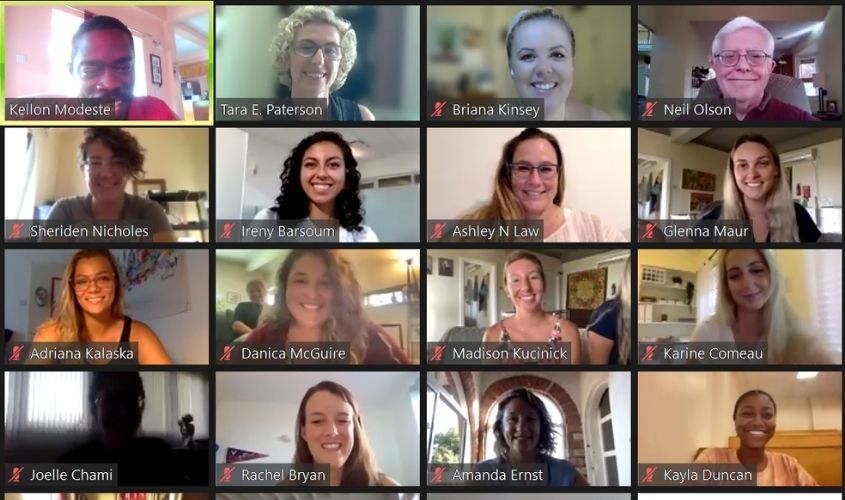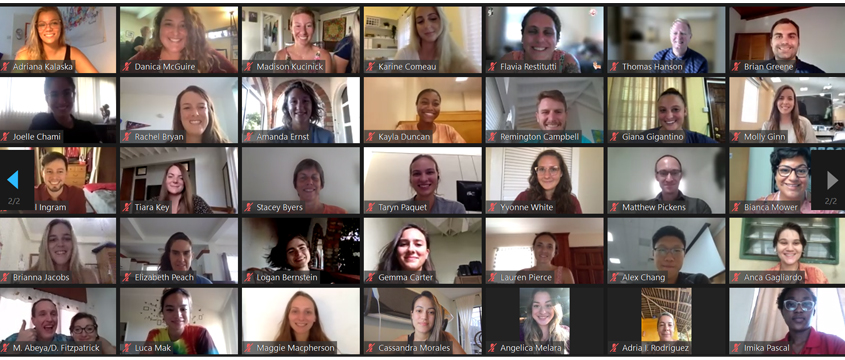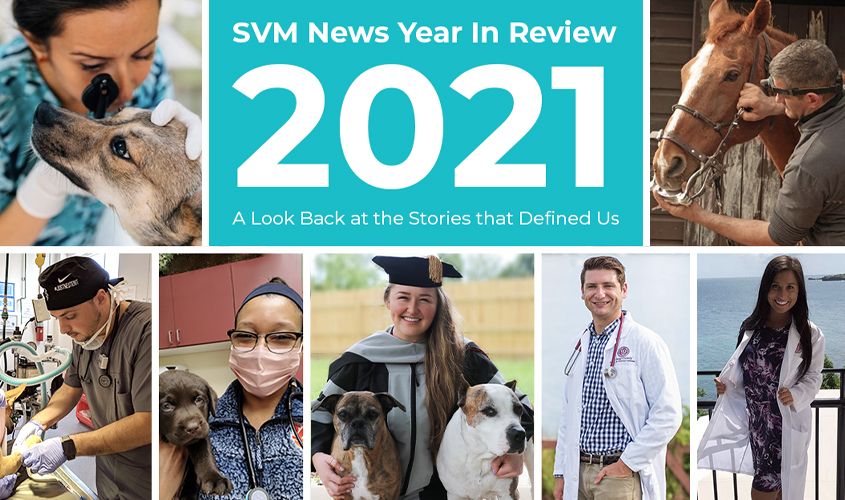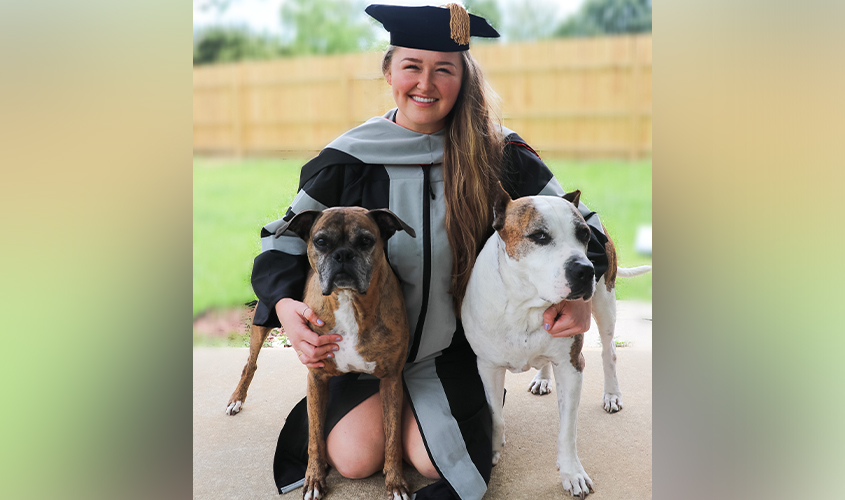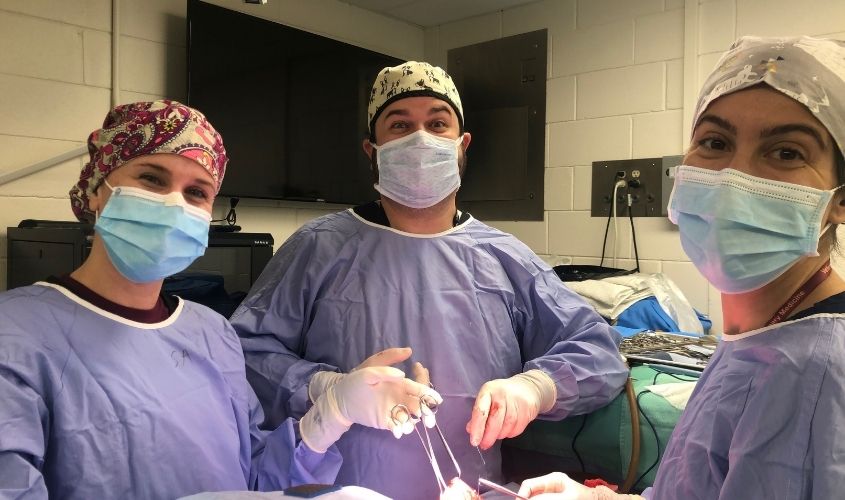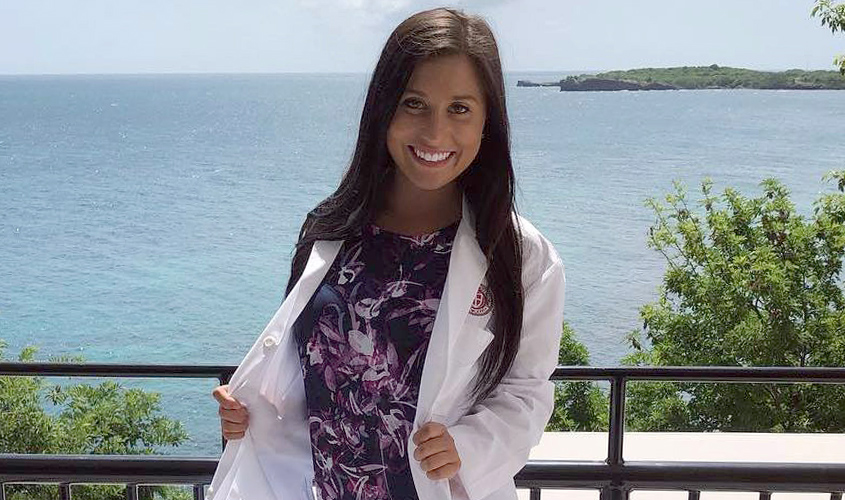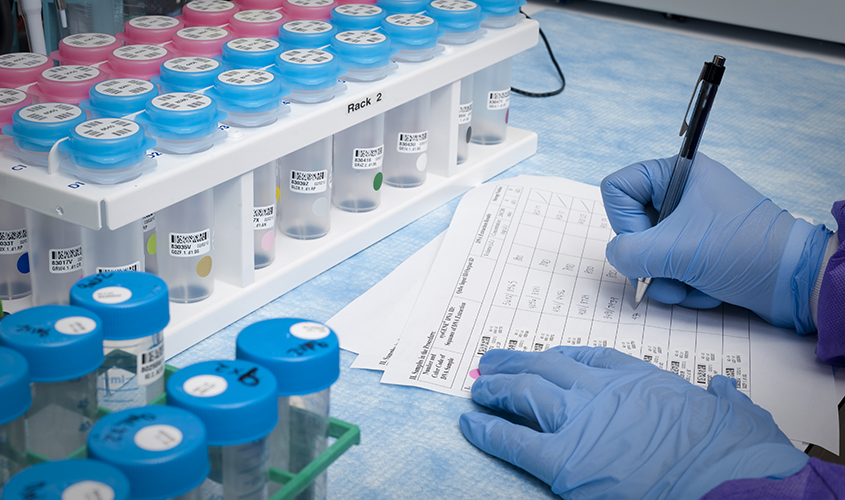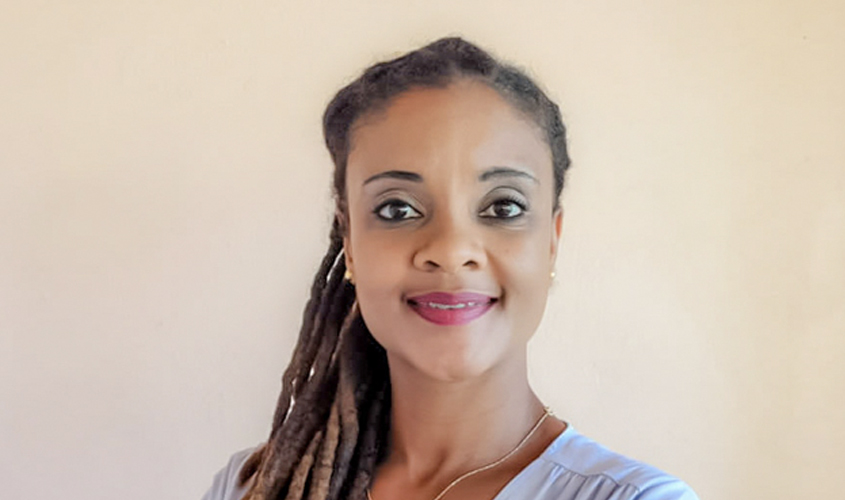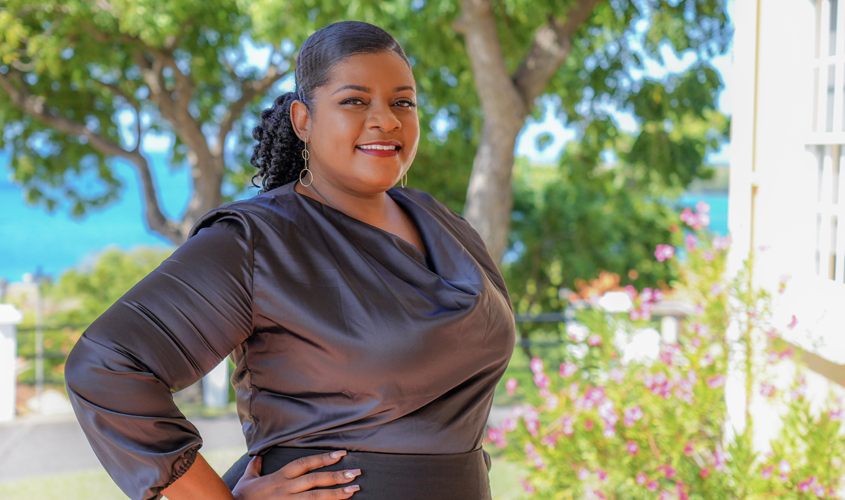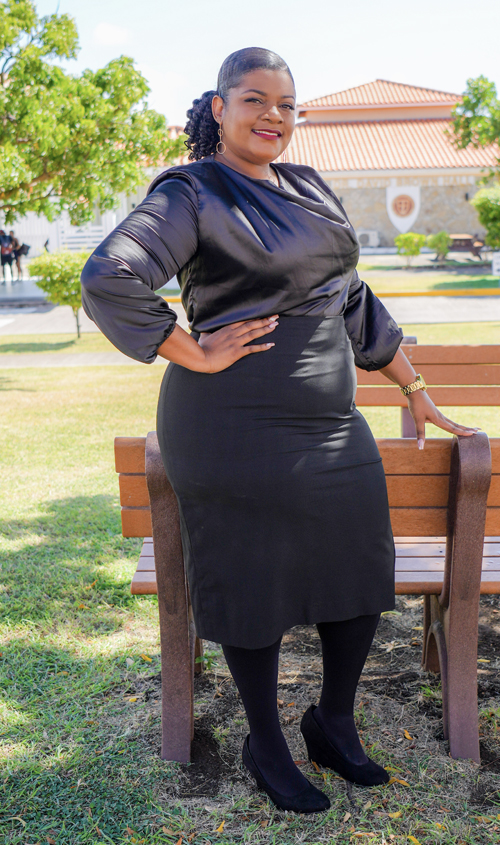Why You Should Join the SGU AMSA Chapter
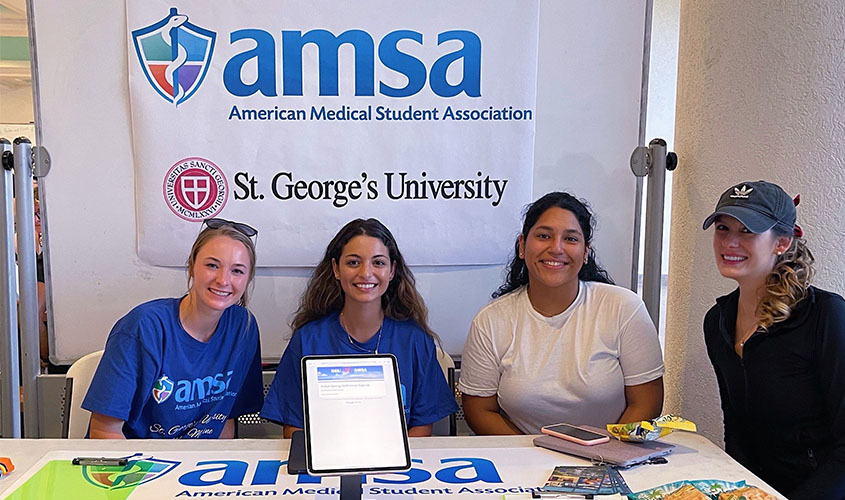
Photo courtesy of SGU AMSA chapter.
With more than 500 members, the St. George’s University chapter of the American Medical Student Association (AMSA) is the organization’s largest international chapter and one of more than 60 student-led clubs hosted by the University.
“It is a great way to meet medical students at other schools,” said AMSA member Azka Iqbal, who served as the chapter’s president during the fall 2021 term. “AMSA national has opportunities that are one of a kind. You can connect with leaders in different medical fields and the experience can be life changing.”
The student organization is also a vital part of the Grenadian community providing health fairs and blood drives, and promoting medical education throughout the island.
In January, the SGU AMSA chapter welcomed Jeanette Carillo, a Term 2 School of Medicine student, as its new president for the spring term.
SGU News spoke with Ms. Carillo, an aspiring pediatrician, to celebrate the start of her tenure and to learn more about the club’s mission and community outreach.
St. George’s University: Congratulations! What are you most excited about doing in your new role as president?
Ms. Carillo: Thank you! I am most excited about leading such a strong group of students from around the world. As president, I hope to create awareness of the environmental and social determinants that impact health and how we as a chapter can alleviate those barriers to good health. I am also looking forward to working alongside other SOM clubs as well as clubs within the Schools of Veterinary Medicine and the Arts and Sciences, particularly the SAS nursing program.
SGU: For those who are new to AMSA, what is the mission of the organization?
Ms. Carillo: The AMSA was founded in 1950 to promote active improvement in medical education and the enhancement of social, moral, and ethical obligations of the medical profession. AMSA’s vision is a world where healthcare is accessible, medicine is affordable, and systems support the diversity around us. Advocacy is central to AMSA.
SGU: How does AMSA serve others?
Ms. Carillo: The SGU chapter of AMSA holds and participates in a number of events like blood drives, health fairs, and COVID-19 vaccination drives that promote equitability in healthcare for the Grenadian communities.
SGU: What are some of the challenges you aim to address as part of your term?
Ms. Carillo: Since many of our students are online due to the pandemic, we are in the process of creating workshops and panels that will allow them to feel supported and encouraged to continue to work alongside AMSA virtually or on campus.
In addition, we are so grateful for the support from our faculty advisors, Dr. Karl Theodore and Dr. Chamarthy Subbarao, who are guiding us to incorporate these new programs that prepare students and aid them towards becoming inspiring physicians.
Follow AMSA
Instagram: @amsa.sgu
Facebook: @amsasgu
Twitter: @amsa_sgu
Email: amsa.sgu@gmail.com
SGU: What would you say to students to encourage them to join?
Ms. Carillo: Joining AMSA is a wonderful opportunity to expand your skills as a medical student, enhance your network through residency panels, and develop a strong understanding of the current issues facing healthcare. Becoming a member allows students the opportunity to influence change through leading and advocating for continued improvement and advancement in healthcare for all.
SGU: Is AMSA open to all students?
Ms. Carillo: AMSA welcomes all School of Medicine students from Term 1-5 both online and in person. In addition, premedical students from the School of Arts and Sciences can also join our chapter.
SGU: How active is your group?
Ms. Carillo: We are quite active as each term is about four months. The executive board meets a few times a month, but members on the e-board are in communication daily/weekly to discuss upcoming events. Since most of the e-board is online, we stay in contact via WhatsApp, email, and Zoom. The general body meetings are held monthly, and we are currently planning our first meeting for early February.
SGU: What other projects is the chapter working on?
Ms. Carillo: Currently we are collaborating with other clubs on several events that include COVID-19 vaccination drives, a phlebotomy lab, an anatomy crossover lab, and a CDC lecture and discussion on One Health.
In addition, we are working on a fundraising event to support the Grenada Heart Foundation. We are also hoping to incorporate more events that enable students to develop stronger clinical skills.
SGU: How can students join?
Ms. Carillo: Go to mycampus.sgu.edu, select student resources, then select student organizations from the drop-down tab. Our sign-up link and additional information about AMSA will be found there! Also, at the beginning of each term, you can sign up and learn more about us at the Student Organizational Fair. blood drives, health fairs, and COVID-19 vaccination drives. Visit our website.
Photos courtesy of SGU AMSA chapter.
— Paul Burch
Related Reading
AMSA SGU donates EC$16,000 to Grenada Heart Foundation
AMSA SGU receives prestigious chapter success award
SGU student organizations contribute valuable funds and expertise to host country
